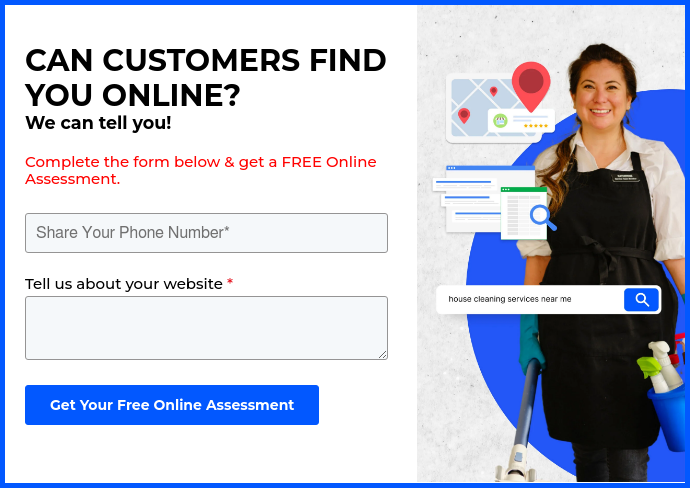Business Appraisals: Everything You Need to Know Before Getting One
A business appraisal is the process of valuing your business. If you’re considering hiring an appraiser, here’s what you need to know.

To you, your business is invaluable.
However, there are many different reasons why a small business owner may need to appraise their business. Whether you’re bringing on a business partner, applying for a loan, or selling, knowing the monetary value of your business can come in handy.
If you think you may need an appraisal and don’t know where to start, keep reading. We’ll guide you through what you can expect, the process of hiring an appraiser, costs, and other alternatives that could be a better option for you.
If you’re still planning on running your business after the appraisal, don’t forget to download our guide on how to turn your website into a small business apps to generate steady revenue and growth.

What is a Business Appraisal?

An appraisal is the best way to get a fair and unbiased assessment of the value of your business, property, or assets. It requires you to hire a certified professional to conduct a thorough analysis of your business’s economic prospects, property or physical assets, market value, and financials.
The process of conducting an appraisal varies, however, it’s important to note that all comprehensive appraisals take time—avoid hiring any appraisers that promise a quick turnaround.
Why Would My Business Need One?
As we mentioned above, there are multiple reasons to hire a business appraiser. Below are some of the most common:
- Buying or selling a business: An appraisal will help you come up with the dollar amount that both parties feel comfortable with.
- Buying or selling a business property: Not all businesses have real estate but if you do, you’ll need to hire an appraiser that specializes in real property.
- Getting divorced: A divorce oftentimes involves the splitting of assets, which can include business properties—especially if you run a family-owned business.
- Filing for bankruptcy: An appraisal will help with creditor negotiations and preparing a financial restructuring plan.
- Applying for a loan: Some business loans, such as EIDL loans, require you to use your business or certain parts of your business as collateral. In this case, an appraiser will evaluate those assets.
- Separating from or bringing on a new partner: Hire an appraiser if you’re looking to settle a dispute with a business partner or draft a buy-sell agreement.
- Filing an insurance claim: After a natural disaster or damages, an appraiser may be called in by your insurer to determine repair costs.
How Will My Business Be Valuated

Depending on your needs, your appraiser will choose the appropriate approach to estimate the value of your businesses. Here are some of the most common ways:
Market Value
A market value approach can involve an analysis of your business’s economic performance, such as revenue, profit, and both tangible and intangible assets. It’s then compared to similar businesses in an open market to determine a potential selling price.
Asset Value
This approach is commonly used when a business is expected to close. It involves subtracting your liabilities from the value of your assets based on their fair market value to obtain your business’s overall appraisal.
Earning Value
For this approach, appraisers use projected income earnings or cash flow. Based on the method used—such as capitalization of earnings or discounted cash flow—a capitalization or discount rate is applied to those projections.
Hiring an Appraiser

A good appraiser will be able to determine the best method to evaluate your business and give you an unbiased assessment. Below is what you can expect when looking for and hiring a business appraiser.
Types
First, it’s important to note that there are a few specializations for appraisers. If you’re looking to appraise your business’s real estate or intellectual property, there are appraisers who specialize in each. If you’re just looking for a general business appraiser, be sure to look for one with experience in your area and industry.
Cost
Hiring an appraiser is not cheap. Unfortunately, many legal proceedings such as divorce or a partner dispute may require it. On average, appraisers charge between $20 to $500 per hour and take 20 to 50 hours to complete an appraisal.
If your needs aren’t very complex, you may be able to get an appraisal for $1,000. However, the range is typically between $3,000 to $35,000—the figure tends to be on the higher end when litigation is involved.
Process
When hiring an appraiser, you will first need to discuss the reason why you need a valuation and your main goal. Prepare to go over the financial and operational structure of your business and gather all documentation including financial records, tax returns, payroll, inventory reports, shareholder agreements, lease and loan documents, business plans and projections, etc.
You’ll then want to verify that you both agree on the scope, timeline, and fee. It’s also good to keep in mind that an appraiser is there to conduct their evaluation fairly and independently—they are not your business’s employee or advocate.
Doing Your Own Business Valuation

If there aren’t any legal requirements to hire an independent appraiser, you may also choose to do it yourself. Although there’s plenty of room for bias, doing your own valuation is a great way to understand what your business is worth and how to measure it. It also makes for a perfect practice run if you’re planning on selling your business down the line.
We suggest researching the valuation methods we discussed above in-depth and choosing the one that best suits your goals. Use any knowledge you gain from your own business valuation to help with pitching, negotiating, or growing your business.
Speaking of growing your business—if you’re ready to transform your website into a revenue-generating, digital storefront, be sure to check out this guide!
%20(1)%20(1).png?width=340&name=Group%2012%20(2)%20(1)%20(1).png)



